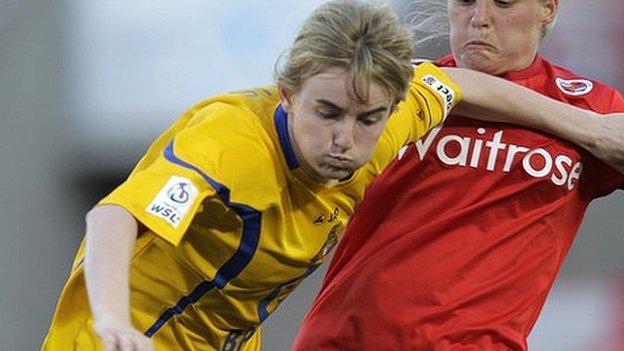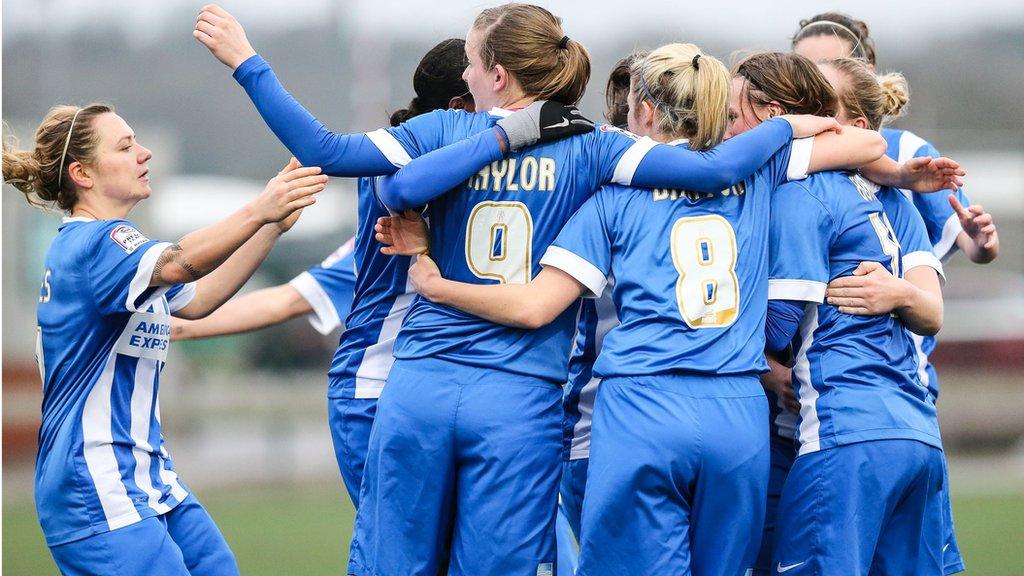Ashleigh Mills: Belles midfielder quits because of MS
- Published

Ashleigh Mills joined Doncaster Rovers Belles in 2013
Doncaster Rovers Belles midfielder Ashleigh Mills has ended her playing career at the age of 20 after being diagnosed with multiple sclerosis.
The former England Under-19 international made four appearances last season as the Belles were promoted from Women's Super League Two.
"I have tried so hard to get back but my legs just won't go," she said in a message posted on Twitter., external
"Unfortunately, this disease cannot be beaten and has taken my dream."
Belles manager Glen Harris said: "It is sad that a young player, with the talent Ash has, has had to stop playing at the top level.
"Ash has been a pleasure to work with, always turning up and training with a smile on her face... even if it's not always in the right kit!"
Mills added: "My three years with the club have been absolutely fantastic.
"I have enjoyed every minute of my time here. I feel very honoured to have represented this great historic and successful club."
Mills said she plans to cheer on the Belles from the stands.
Doncaster start the new Women's Super League One season at home to reigning champions Chelsea on 24 March.
What is multiple sclerosis?
Around 100,000 people in the United Kingdom have multiple sclerosis or MS, according to the Multiple Sclerosis Society., external
It is normally diagnosed in people between the ages of 20 and 40.
Symptoms might include fatigue, vision problems and difficulties with walking, but MS is different for everyone.
In MS, the protective layer surrounding nerve fibres in the brain and spinal cord - known as myelin - becomes damaged. The immune system mistakenly attacks the myelin, causing scarring or sclerosis.
The damaged myelin disrupts the nerve signals - rather like the short circuit caused by a frayed electrical cable.
If the process of inflammation and scarring is not treated, then eventually the condition can cause permanent neurodegeneration.
Michelle Mitchell, chief executive of the MS Society, said: "MS is an unpredictable and challenging condition to live with and diagnosis can be upsetting and scary. The MS Society is here to help anyone affected by MS."
MS Society helpline: 0808 800 8000.
- Published10 March 2016

- Published10 March 2016

- Published10 March 2016

- Published20 June 2016

- Published7 June 2019
